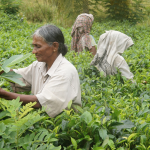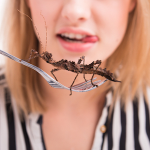Part 1 of this two-part series described the “Stanford University paradox” – the uncritical embrace of politically correct concepts that contradict its reputation as a cutting-edge, science-grounded institution. I described the contrast between the university’s outstanding research and its dubious view of “sustainability,” which includes a commitment to organic farming practices. I elaborate on the latter here, in Part 2.
sustainability
You would think this is an easily determined answer. As usual, it is complicated. So many factors to consider.
Earlier this year, Sri Lanka banned imports of synthetic pesticides and fertilizers, part of its effort to embrace organic-only farming. The project has left farmers without access to vital tools and sent food prices soaring.
Outside of the Western world, insect consumption is common. The Chinese, for instance, will eat just about anything that crawls on six (or more) legs. Centipedes and fried scorpions appear on the menu. Not only is entomophagy widespread, it's also probably healthier for people -- and the planet -- than eating other animals.
Besides making wigs, or perhaps some rather bizarre clothing and artwork, there aren't a lot of practical uses for discarded human hair. But that could change thanks to a team of Japanese and South Korean chemists.




